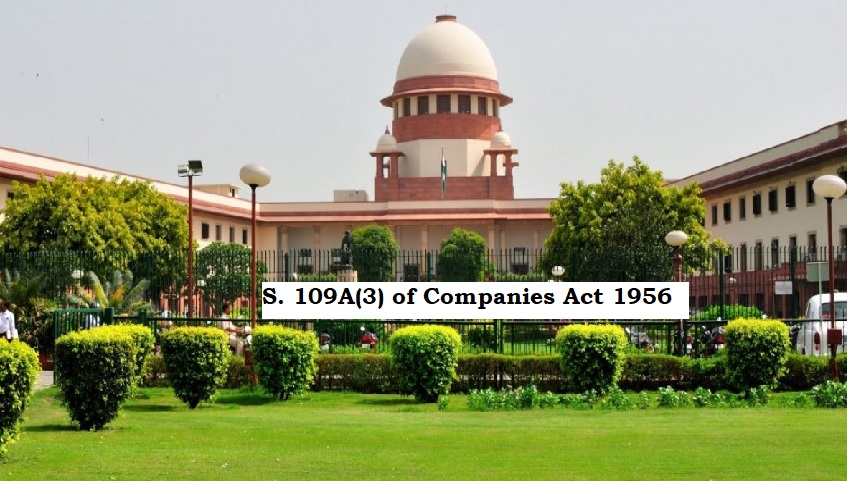


In a significant judicial pronouncement, the Supreme Court of India has clarified the interpretation of the non-obstante clause within the legal framework governing corporate and depository regulations. The case at hand involved a nuanced examination of the non-obstante clause present in both Section 109A(3) of the Companies Act, 1956, and Bye-law 9.11.7 of the Depositories Act, 1996. The crucial aspect addressed by the court was the alleged exclusion of legal heirs from their legitimate claims over securities when a nominee is involved.
The court's ruling underscored the principle that the non-obstante clause, despite its robust and comprehensive language, does not operate to preclude legal heirs from asserting their rightful entitlement to securities against a designated nominee. The specific sections under consideration, Section 109A(3) of the Companies Act, 1956, and Bye-law 9.11.7 of the Depositories Act, 1996, have been subject to careful scrutiny to discern the legislative intent behind the inclusion of the non-obstante clause.
According to the Supreme Court's interpretation, the primary objective of the non-obstante clause in these provisions is not to bar legal heirs from making claims on the securities in question. Rather, the clause serves a narrower purpose, empowering the company to effectuate the transfer of shares to the nominee without the interference or contestation from any other party. The nominee, in this context, acts as a designated recipient of the shares, but the court clarified that this designation does not strip legal heirs of their inherent rights to make a legitimate claim.
This legal clarification becomes especially pertinent in scenarios where an individual has designated a nominee for their securities holdings. The non-obstante clause, though potent in its wording, does not operate as an absolute bar to the claims of legal heirs. Instead, it upholds the nominee's status as the designated recipient but does not nullify the underlying rights of legal heirs. In essence, while the company is empowered to transfer shares to the nominee, this empowerment does not infringe upon the inherent rights of legal heirs to assert their claims.
The court's nuanced interpretation reinforces the balance between the intent of an individual to nominate a specific person for their securities and the safeguarding of the rights of legal heirs. It emphasizes that the non-obstante clause is not an all-encompassing shield against claims from legal heirs but a provision designed to streamline the transfer process to the nominee.
Moreover, the judgment acknowledges the significance of protecting the interests of legal heirs, ensuring that they are not unjustly deprived of their entitlements in situations involving nominees. The ruling, therefore, upholds the equitable principles inherent in succession laws, which recognize the rights of legal heirs to inherit and claim assets from the deceased.
In conclusion, the Supreme Court's decision on the non-obstante clause in Section 109A(3) of the Companies Act, 1956, and Bye-law 9.11.7 of the Depositories Act, 1996, brings clarity to the often intricate interplay between nomination, legal rights, and the non-obstante clause. It reaffirms the principle that the empowerment of nominees through such clauses does not abrogate the legitimate claims of legal heirs, preserving a delicate balance between testamentary freedom and the protection of inheritance rights.
TAGS: Legal heirs Nominee Securities Interpretation Legislative intent Transfer of shares